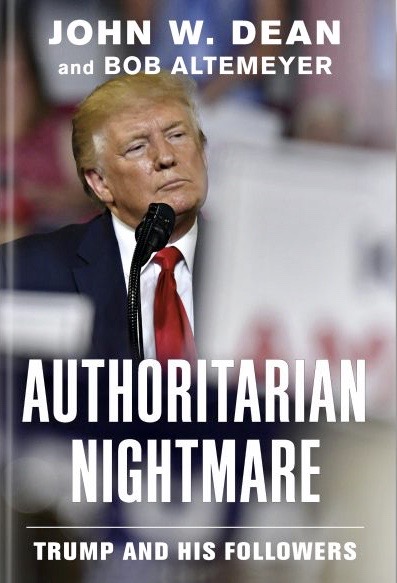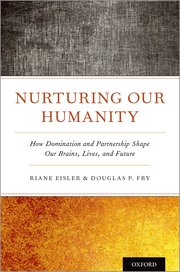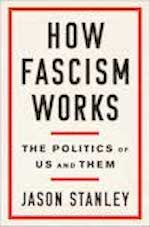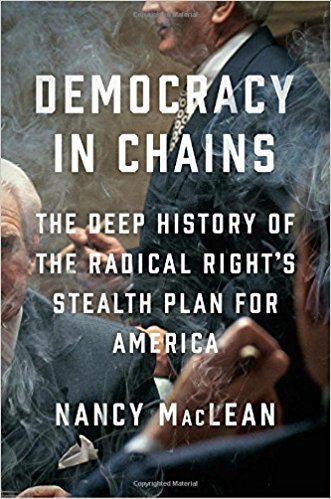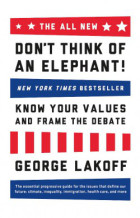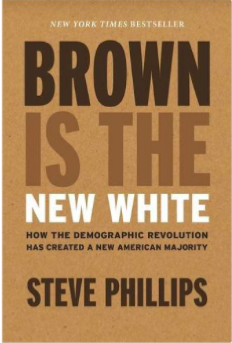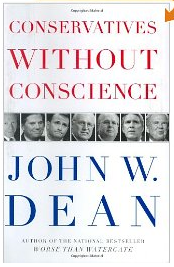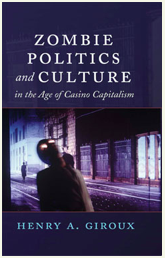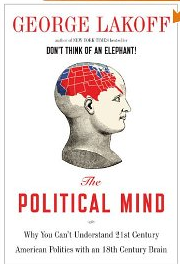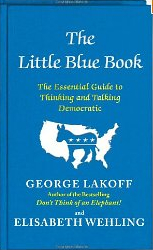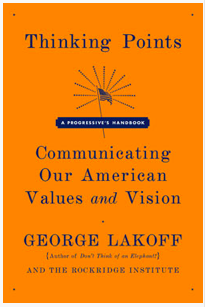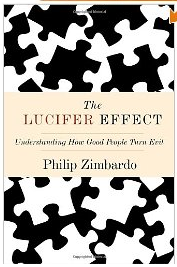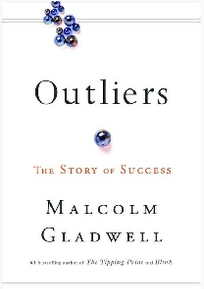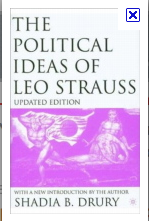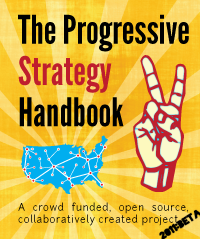House Republicans Warn SEC Against Implementing Financial Reform Regulations – Republicans on the House Financial Services Committee have been warning regulators implementing the Dodd-Frank financial reform law that the GOP is in no mood to see regulations that actually rein in the predatory and risky practices of the banks. Before Congress left for its pre-election recess, the federal bank regulators — including the SEC — requested funding to begin implementing Dodd-Frank, but Republicans balked and blocked it. And it’s becoming clearer that they intend to deny the agencies funding if the rule-making process isn’t to their liking. During the regulatory reform debate, Republicans consistently claimed that any profitable activity that a bank undertakes — even if the profits come via ripping off consumers — is not to be restricted.
Republican Senator Who Railed Against Healthcare and Earmarks Got $960,000 Healthcare Earmark – Republican John Ensign of Nevada, who voted against the Democrats’ sweeping health care bill, quietly got a healthcare stimulus of his own: $960,000 doled out to the University of Nevada for a Primary Care Residency Expansion program. What’s more, the senator, Republican John Ensign of Nevada, has also joined about a dozen Republican senators in a crusade to end earmarks in the federal budget. The special dispensation for the University of Nevada was created via an earmark, a legislative maneuver that directs funds to be spent on a specific project.
Run for the Border, Steve King’s Coming! – Rep. Steve King has compared border-crossers to livestock, asserted that President Obama “favors the black person,” and described illegal immigration as a “slow-motion terrorist attack.” Last summer, the Iowa Republican proclaimed that he would support amnesty for illegal immigrants under just one condition—that “every time we give amnesty for an illegal alien, we deport a liberal.” Since Tom Tancredo left office in 2008, King has risen to take his place as the right’s biggest anti-immigration flamethrower. Now he’s preparing to wage an even bigger assault under Republican-controlled House. King is very likely to become the next chair of the House Judiciary’s subcommittee on immigration, working together with Judiciary’s incoming chairman, Lamar Smith—another immigration hawk who’s vowed to put a crackdown at the top of his agenda.
Immigration advocates say that King simply intends to create more rabble-rousing political theater and inflame the masses—particularly as nearly all of his proposals stand little chance of passing the House, let alone the Senate or the president’s desk. “A lot of it is theatrics, really using the bully pulpit of committee majority position to push these things out there and stir things up. It wouldn’t necessarily result in legislative [victories],” says Mary Giovagnoli, director of the Immigration Policy Center. She adds that the oversight hearings are meant to hammer home the message that “Obama has failed to enforce the law” on immigration—even though the current administration is deporting even more immigrants than under Bush, according to figures from the Department of Homeland Security.
Conservative Proposals on the Deficit Can’t be Serious – Here’s the long-term deficit situation, all contained in one handy chart from the Congressional Budget Office:
Here’s what the chart means:
- Discretionary spending (the light blue bottom chunk) isn’t a long-term deficit problem. It takes up about 10% of GDP forever. What’s more, pretending that it can be capped is just game playing: anything one Congress can do, another can undo. So if you want to recommend a few discretionary cuts, that’s fine. Beyond that, though, the discretionary budget should be left to Congress since it can be cut or expanded easily via the ordinary political process. That’s why it’s called “discretionary.”
- Social Security (the dark blue middle chunk) isn’t a long-term deficit problem. It goes up very slightly between now and 2030 and then flattens out forever. If Republicans were willing to get serious and knock off their puerile anti-tax jihad, it could be fixed easily.
- Medicare, and healthcare in general, is a huge problem. It is, in fact, our only real long-term spending problem.
To put this more succinctly: any serious long-term deficit plan will spend about 1% of its time on the discretionary budget, 1% on Social Security, and 98% on healthcare. Any proposal that doesn’t maintain approximately that ratio shouldn’t be considered serious.
Taxpayers Have Been Footing the Bill for Corn Ethanol for More than 30 Years – Right now, agribusiness lobbyists and the corporate corn industry are descending upon Congress, pressuring them to extend costly corporate bailouts to dirty corn ethanol. We’ve been working on your behalf, fighting to save your tax dollars from funding this industry that currently contributes more climate pollution than conventional gasoline.
You, the taxpayer, have been footing the bill for corn ethanol for more than 30 years. This year alone, more than $5 billion dollars landed in the pockets of the corn ethanol industry through the Volumetric Ethanol Excise Tax Credit (VEETC). This is an inexcusable corporate giveaway, considering that the Renewable Fuel Standard passed by Congress mandates the production of ethanol by law. Why are we paying these companies to play by the rules?
Please help us save tax dollars — and the planet. Tell your representative to end this credit now
Science Shows Antibacterial Chemicals are Dangerous to People and Environment – Triclosan and Triclocarbon are killers. That’s their job.
The antimicrobial chemicals are added to thousands of consumer products – from soap to toothpaste, public changing tables and even shoes – specifically to kill bacteria and viruses. Unfortunately, when the soap and other products wash down our drains, Triclosan and Triclocarbon end up in the aquatic environment and even on farms around the country where they keep doing their job, killing things.
The thresholds for killing microbes are much higher than those for other, more fragile life forms, like algae, crustaceans and fish. ‘This explains why residual concentrations of antimicrobials found in aquatic environments are still sufficiently harmful to wipe out the small and sensitive crustaceans, which are critical to the aquatic life cycle and food web,’ Halden says.” Scientists have also found concentrations of the antimicrobial in the bodies of animals higher up on the food chain, such as dolphins, and even in . . . people.
George W. Bush’s Omission Points – When former British Prime Minister Tony Blair released his memoirs, he neglected to mention a key (and controversial) January 31, 2003, talk they held in the Oval Office. According to a memo written by a Blair aide documenting the meeting, Bush and Blair in that session each said they doubted any weapons of mass destruction would soon be discovered by the UN inspectors then searching for such arms in Iraq. Without any WMDs, it could be harder to win support for the war. But Bush had an idea—or two.
The memo—portions of which were published in the New York Times and in Philippe Sands’ Lawless World —noted that Bush raised the notion of provoking a confrontation with Saddam Hussein. “The US was thinking,” the memo said, “of flying US reconnaissance aircraft with fighter cover over Iraq, painted UN colours. If Saddam fired on them, he would be in breach” of UN resolutions. A retaliatory attack would then be fully justified; the war could begin. In other words, Bush raised the prospect of staging a phony event to justify a military attack on Iraq. Bush also discussed producing some “defector who could give a public presentation about Saddam’s WMD.” The two men also agreed that it was unlikely that “internecine warfare” would break out between “different religious and ethnic groups” after an invasion of Iraq.
Now, Bush, too, is keeping the cover-up alive. In his new book, Decision Points, Bush does write about this particular meeting. He notes that he and Blair discussed squeezing another resolution out of the UN Security Council that would declare that Iraq had failed to meet its disarmament obligations under a previous resolution—in effect, handing Washington and London a go-to-war-free card.
But Bush says nothing about his proposal to provoke the war through fraud.
It’s one thing to misinterpret facts; it’s another to pretend they don’t exist. The memo detailing Bush’s idea to con the world into war does exist. But that reality is not part of Bush’s story. This not only demonstrates that Bush’s account is neither candid nor accurate. It raises the question: what else is missing?
Regards,
Jim






